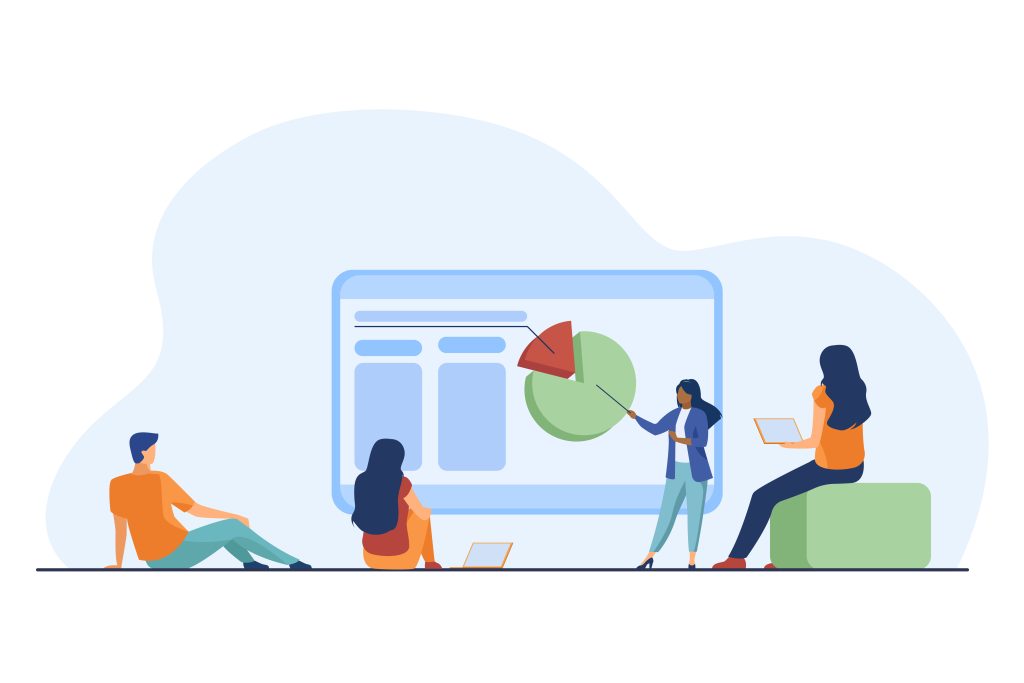Digital transformation has revolutionized how companies operate and connect with their customers. Tools like CRMs, CMSs, and ERPs are essential in this process, providing efficiency, organization, and an improved customer experience. In this article, we will explore what these tools are, how they work, and the benefits they can bring to your company.
What is a CRM?
CRM Definition
CRM, or Customer Relationship Management, is a technology-supported strategy that companies use to manage and analyze interactions with their customers throughout the customer lifecycle. The primary goal is to improve customer relationships, aiding in customer retention and driving sales growth.
CRM Features
Contact Management: Stores detailed information about customers and leads.
Sales Automation: Automates repetitive tasks in the sales process, such as follow-ups and status updates.
Analytics and Reports: Provides insights into sales performance and customer behavior.
Pipeline Management: Helps manage the sales funnel, identifying opportunities and areas for improvement.
CRM Benefits
Improved Customer Relationships: Provides a comprehensive view of the customer, making it easier to personalize interactions.
Increased Productivity: Automates repetitive tasks, allowing the team to focus on more strategic activities.
Data-Driven Decisions: Offers detailed reports and analysis, aiding in informed decision-making.
What is a CMS?
CMS Definition
CMS, or Content Management System, is a platform that enables the creation, management, and modification of digital content without requiring advanced technical knowledge. It is widely used to create and manage websites and blogs.
CMS Features
Content Editor: Editing tools that allow users to create and format content intuitively.
Media Management: Storage and management of images, videos, and other multimedia files.
Templates and Themes: Provides a variety of templates and themes to customize the site’s design.
Integrated SEO: Tools for search engine optimization, helping to improve site visibility.
CMS Benefits
Ease of Use: Allows users without technical knowledge to efficiently manage content.
Flexibility: Adaptable to different types of sites, from blogs to online stores.
Collaboration: Facilitates collaboration between different users, allowing multiple people to manage content.
What is an ERP?
ERP Definition
ERP, or Enterprise Resource Planning, is an integrated system that manages all business processes of a company, from finance and accounting to human resources and supply chain management.
ERP Features
Financial Management: Accounting, budgeting, and financial reporting.
Human Resource Management: Recruitment, payroll, and performance management.
Supply Chain Management: Inventory monitoring, purchasing, and logistics.
Production Management: Production planning and control, quality management, and maintenance.
ERP Benefits
Operational Efficiency: Integrates all business processes into a single system, improving efficiency and productivity.
Visibility and Control: Provides a comprehensive view of company operations, facilitating decision-making.
Cost Reduction: Automates manual processes, reducing errors and operational costs.
How to Choose the Right System for Your Company
Assessing Needs
Before choosing a CRM, CMS, or ERP, it’s important to assess the specific needs of your company. Consider factors such as company size, industry, and business goals.
Scalability
Choose systems that can grow with your company. Scalability is crucial to ensure the chosen solution remains effective as the company expands.
Integration
Ensure that the systems can integrate with each other and with other tools your company already uses. Integration facilitates centralized management and information exchange between different departments.
Usability
Ease of use is key to ensuring that your team adopts and effectively uses the system. Opt for solutions with intuitive interfaces that offer support and training.
Conclusion
Digital transformation is a necessity for companies that want to remain competitive in today’s market. Tools like CRMs, CMSs, and ERPs play a crucial role in this process, offering solutions to improve customer relationship management, content creation and management, and operational efficiency. By strategically choosing and implementing these tools, your company can achieve new levels of productivity, customer satisfaction, and growth.
FAQ
What is a CRM, and how can it benefit my company? A CRM is a tool that helps manage and analyze customer interactions. It can benefit your company by improving customer relationships, increasing the productivity of the sales team, and providing valuable data for decision-making.
What is the difference between a CMS and an ERP? A CMS is a platform for creating and managing digital content, while an ERP is an integrated system that manages all business processes, from finance to supply chain.
How do I choose the right system for my company? Assess your company’s specific needs, consider scalability, integration capabilities, and usability of the systems. Make sure the chosen solution can grow with your company and integrate well with other tools you already use.



